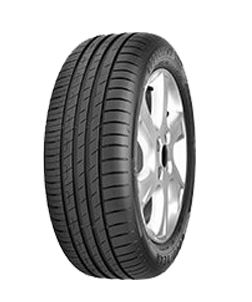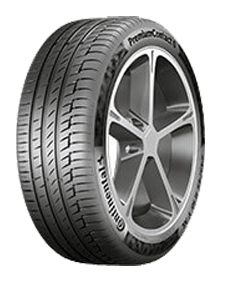Mobile Car Battery Fitting
Car battery failure is one of the most common causes of vehicle breakdowns.
Open 24 hours - Get a Quote
We supply and fit car batteries for any make and model vehicle
Battery failure is one of the most inconvenient and expensive motoring problems to resolve. Although it is the heart of your vehicle, a car battery is only expected to have a life span of around five years and yet the advances in automotive technology can shorten this even further.
We increasingly rely on them to re-charge our mobile phones, iPods and anything else we can charge through the 12v lighter socket. Then there are the heated seats, electric windows, demisters, all of which enhance your driving experience, but drain the life out of your battery. Even stop-start systems, while good for the environment, are an extra drain on your battery power. That is why it is important to be aware of the age of your battery, signs that it is on its last legs and maintenance tips to ensure it doesn’t let you down.
Why choose DG Tyre Sevices ?
No call out charges, no fittings costs, just the cost of your new car battery. You'll also get even more from our mobile car battery replacement service because we'll take your old battery away and dispose of it for you.Additionally, we only supply Platinum Batteries which meet, or exceed your vehicles original specification (O.E). You won't find us fitting cheap batteries which could let you down when you need your vehicle the most.
We don't believe in charging extra to get you back on the road, just order your battery and our mobile fitting service is now available for car batteries too, meaning if you get stranded anywhere with a flat battery we'll try come out to you the very same day. If you think your battery could do with replacing ready for winter, our batteries all have next day fitting free of charge, so you won't be waiting too long.
How to maintain your car battery
Here are several simple steps you can take to get the maximum life and value out of your car battery.1. Check the charge. Make sure your cell voltage is checked when you have your car serviced. A fully charged battery will have a charge of 12.5 to 12.6 volts. When the engine is running this should rise to 13.7 to 14.7 volts.
2. Condition. Inspect your battery every few months to make sure it is clean and secure. A dirty battery connection will weaken the charge, so remove the connectors from the terminal to clean away grease, dirt and dried acid build-up. You could even apply a layer of multi-purpose grease to protect the battery from rust and corrosion.
3. Prevention. As temperatures drop more power is needed to start the engine. In order to give your battery a helping hand, ensure all accessories are unplugged and switch off anything else that drains its power. Get into the habit of turning everything off before you leave your car.
4. Use it or lose it. Not driving your vehicle enough can lead to battery problems. Batteries will refuse to work when vehicles have been left standing idle. Equally, if your car is only used for short trips, the battery will not have enough time to recharge, which will ultimately leave it flat.
Get in touch today on t: 02392 655777 >
A quick guide to finding the correct Tyres
-

CAR TYRES - We come to you at home or work to fit your tyres. You can order online or if you prefer you can speak with one of our advisors on 02392 655777.
We know that the most important factors when it comes to replacing your car tyres are value for money and convenience.
As the UK’s leading mobile tyre retailer we offer a range of good quality economy tyres as well as premium brands including Michelin, Continental, Pirelli and Bridgestone. To help you choose the correct tyres we have classified them into three categories: premium; mid-range; economy. -

VAN WINTER TYRES - Tyres fitted to vans and commercial vehicles should be checked regularly for signs or wear or damage. However, fitting winter tyres is an essential measure in keeping working vehicles on the road and working safely whatever the weather. For some years now, large fleet operators like utility companies, delivery firms and supermarkets have made a point of fitting winter tyres to all their vehicles from October to April.
Winter tyres bring increased safety in all winter conditions, not solely on ice and snow. The costs involved are minimal, far less than the costs to any business of not being able to keep vehicles running in bad weather. Additionally, the mobile fitting service of DG Tyre Services means that there’s no inconvenience or lost time involved in switching from summer to winter tyres, either.
DG Tyre Services recommends the use of winter tyres and we fit them to our own extensive fleet of vans every year. They are available in sizes to fit all vehicles and in the reinforced versions needed to support the higher load ratings and weightbearing specifications of vans and commercial vehicles.
Winter tyres for vans have been designed with durability in mind. The tread block design and tread patterns of many van winter tyres ensure exceptional tyre life. For more information on the technology behind winter tyres for vans click here.
Keeping both drivers and fleet vehicles safe, mobile and reliable is important for countless business all year round. Running vans with summer tyres in winter conditions can mean that customers are let down, deadlines missed and money lost, quite apart from the safety implications for both vehicles and staff. It’s important to fit winter tyres when average temperatures fall, not solely when Britain grinds to a halt as the first snow starts to fall. Contact DG Tyres Today -

4x4 TYRES - In recent years the market for 4×4 tyres has expanded to become the fastest growing sector of new vehicle registrations, in 2002 the demand for 4×4 tyres was 250% of that for 1997. Gone are the days when a 4×4 vehicle meant driving an ex-army vehicle with no heaters / wipers / performance etc. Today’s 4×4 vehicles are some of the most sophisticated on the road.
Even manufacturers that many years ago may not have considered a 4×4 vehicle in their model line-up are selling as many as they can build – BMW X3 and X5, Porsche Cayenne to name but a few. Most of these “new generation” 4×4’s come equipped with equipment such as cruise control, climate control, active suspension (to name but a few) as standard. Probably the biggest improvement is to be seen in the vehicle performance – for instance the Porsche Cayenne Turbo puts out 450bhp with 620 nm of torque, and will easily outperform the vast majority of cars of the road.
To cope with the extra power and performance of these new vehicles, 4×4 tyre requirements have changed dramatically. In the past most 4×4 vehicles were equipped with either 15″ or 16″ wheels and fitted standard (80 series) or possible 70 series tyres with either “S” (113mph) or “T” (118mph) speed rated tyres. Again if we take the Porsche Cayenne Turbo as an example the standard wheels fitted are 8Jx18 with 255/55R18 Y rated (186mph) tyres. Again with these vehicles there is always the option to upgrade wheel and tyres to 20″ or even 22″ and above.





